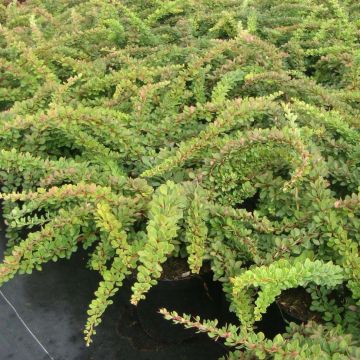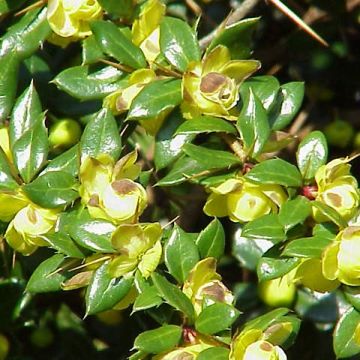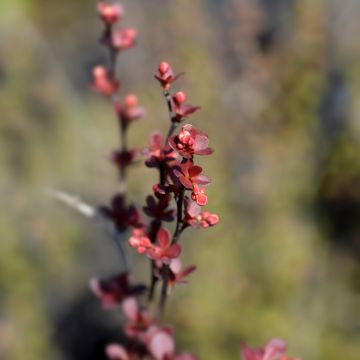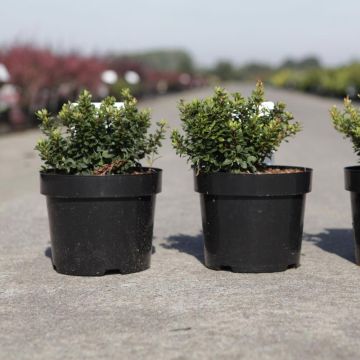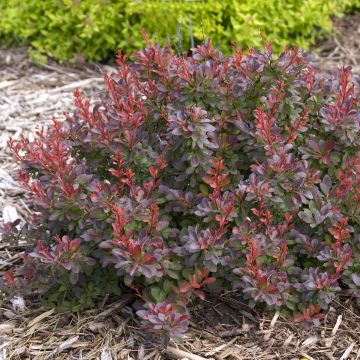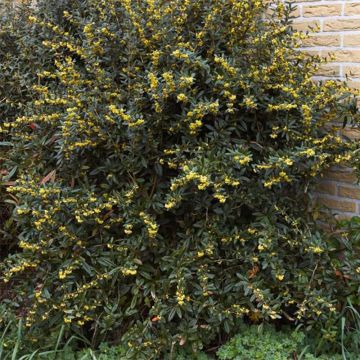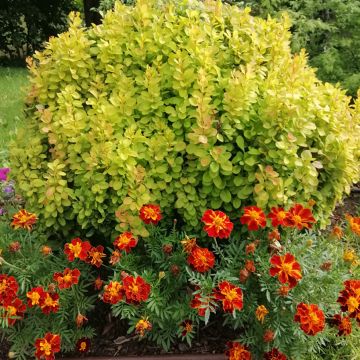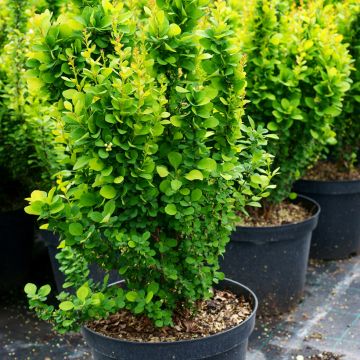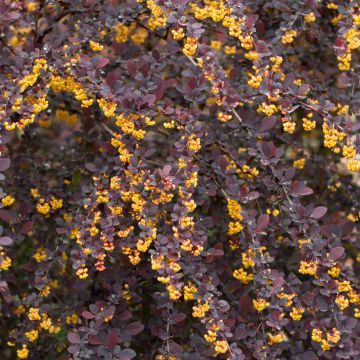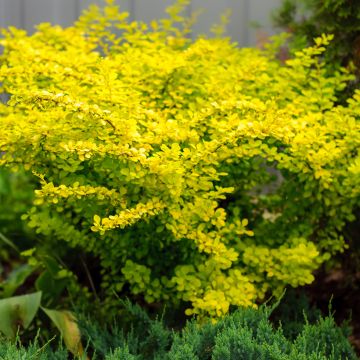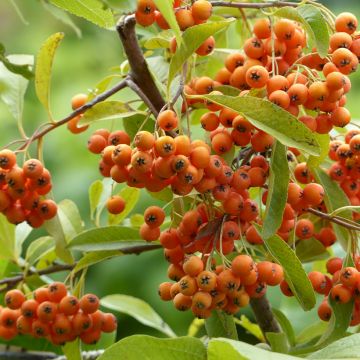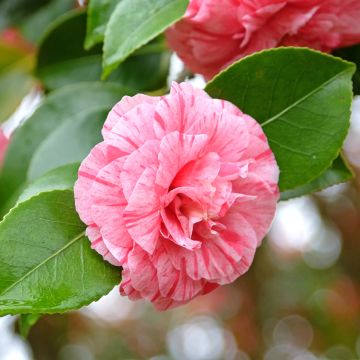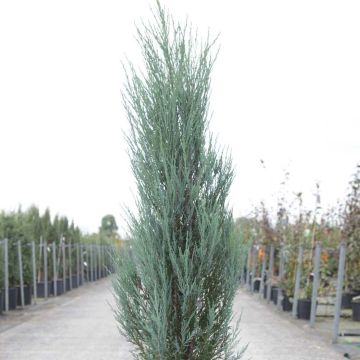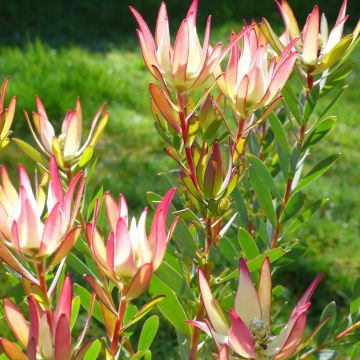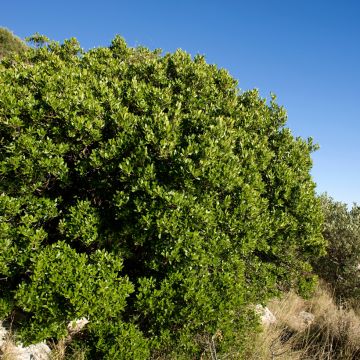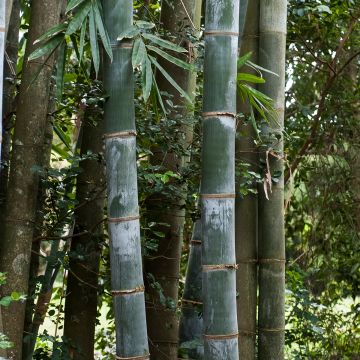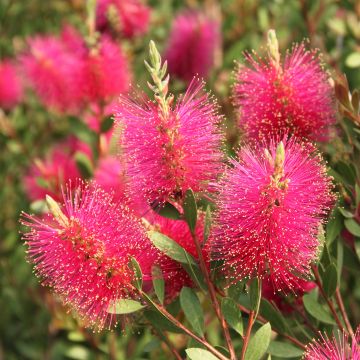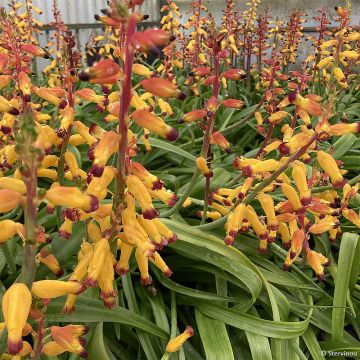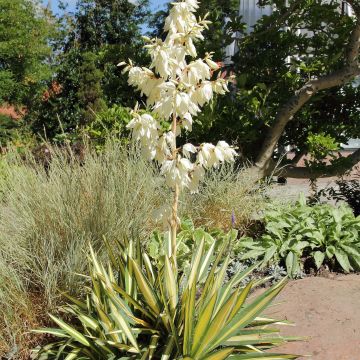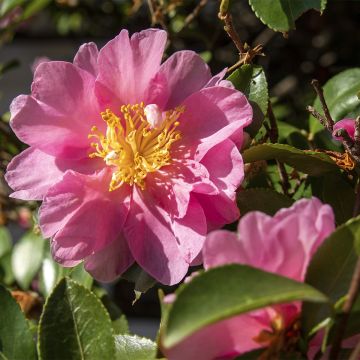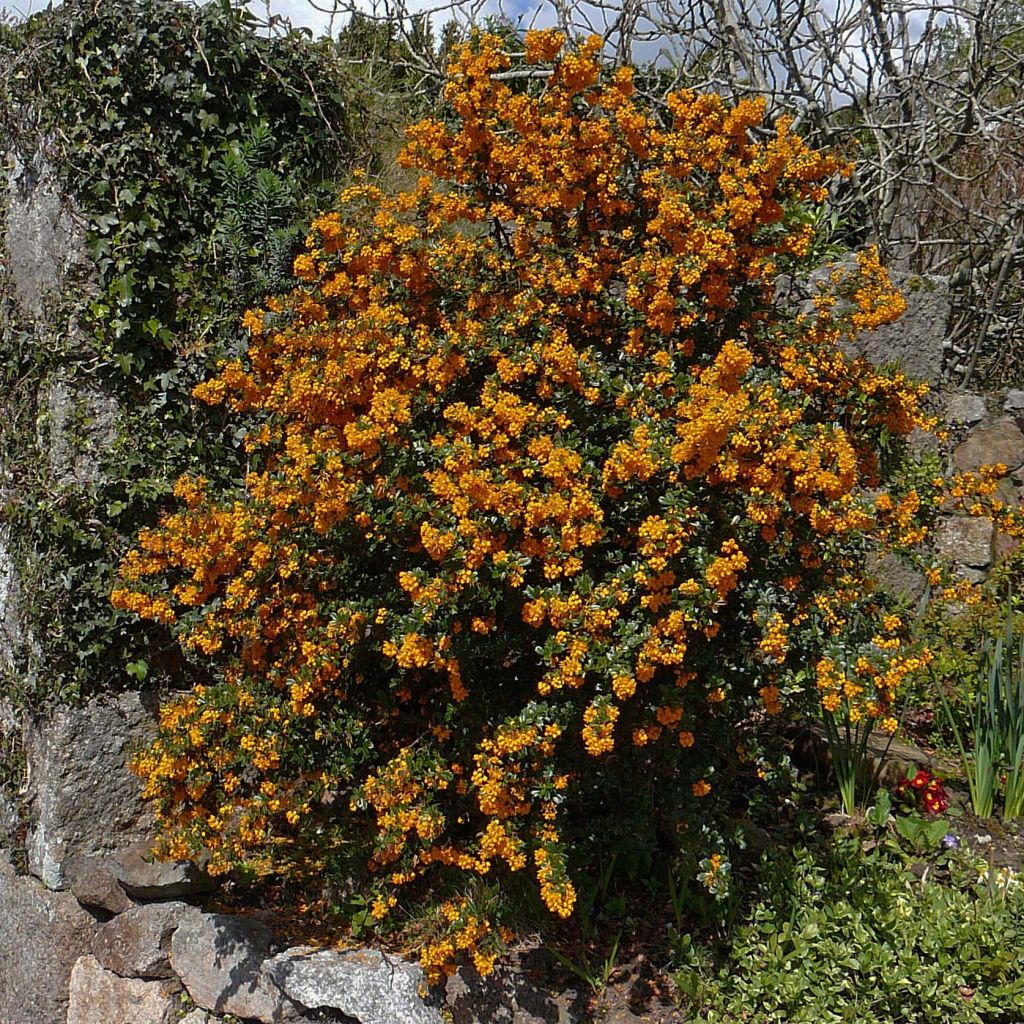

Berberis darwinii - Darwins barberry
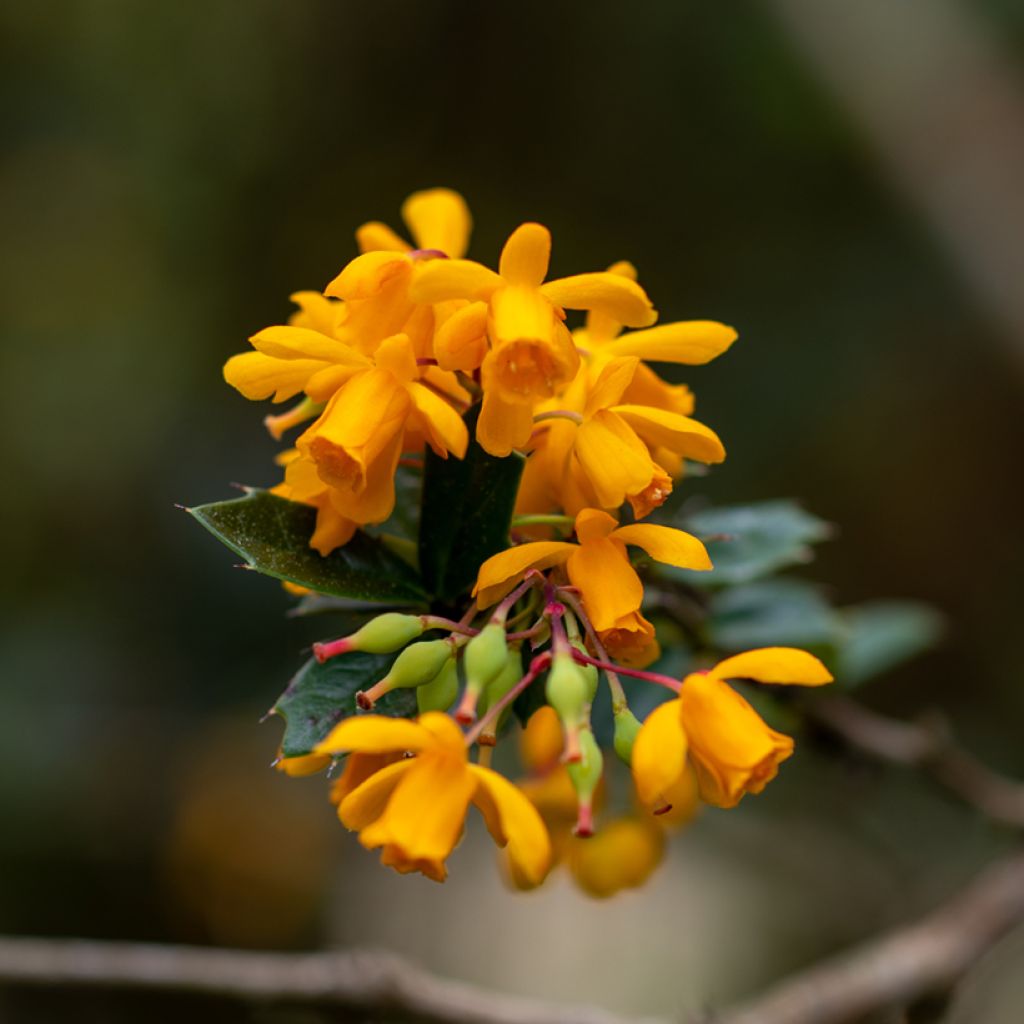

Berberis darwinii - Darwins barberry
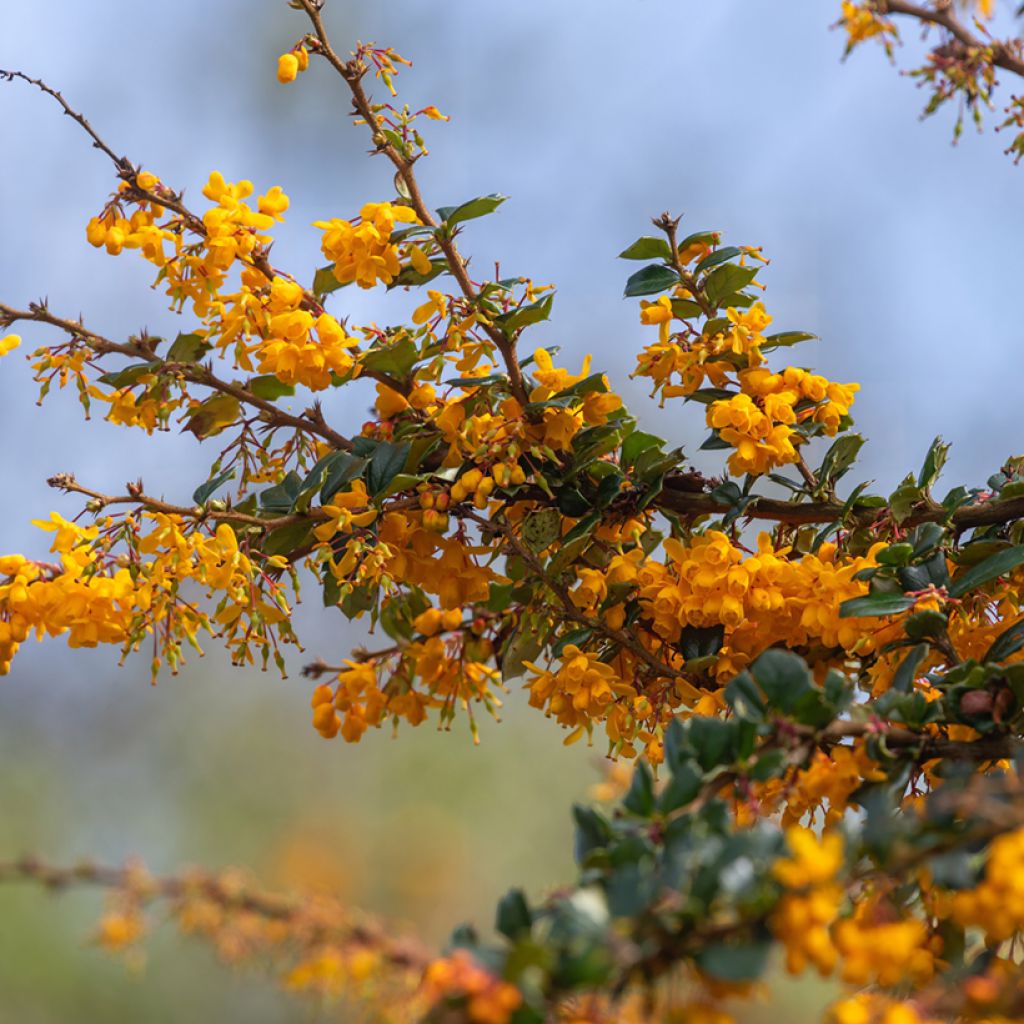

Berberis darwinii - Darwins barberry
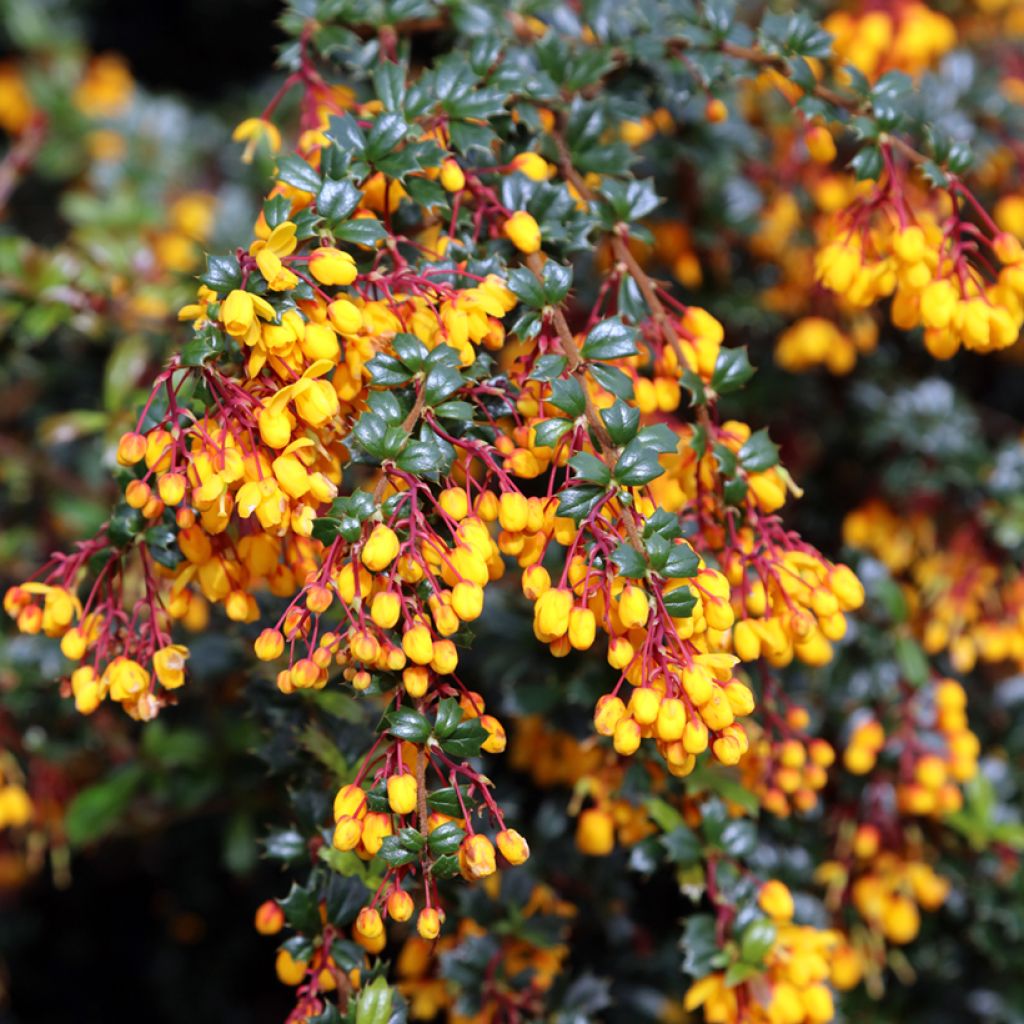

Berberis darwinii - Darwins barberry
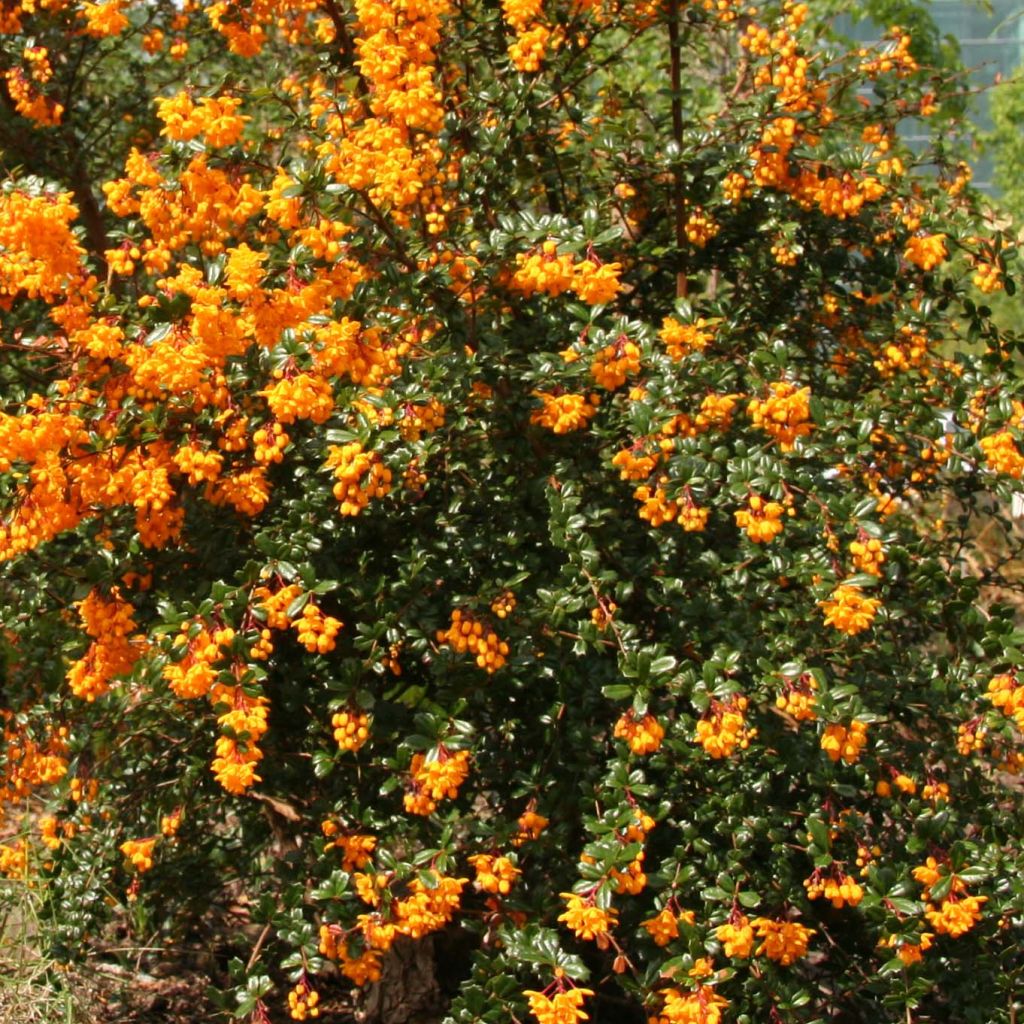

Berberis darwinii - Darwins barberry
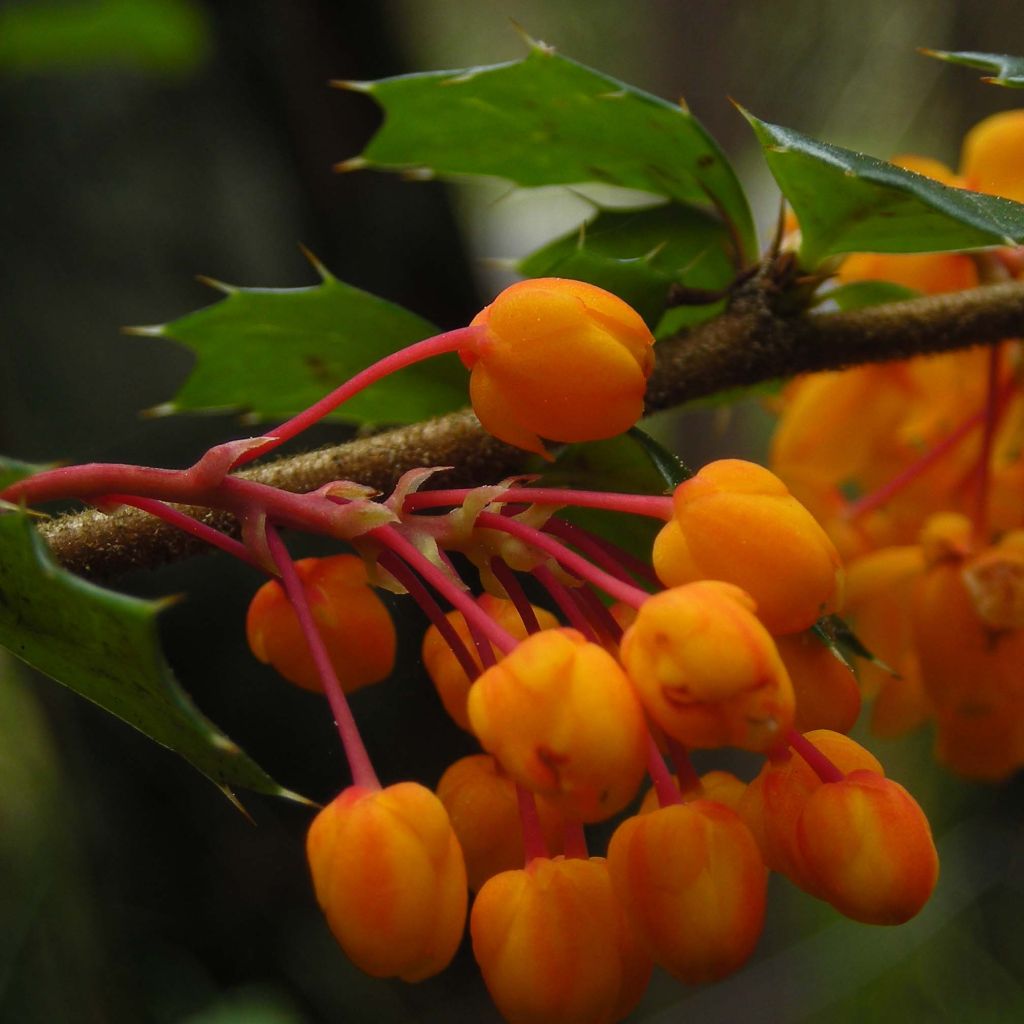

Berberis darwinii - Darwins barberry
Berberis darwinii - Darwins barberry
Berberis darwinii
Darwin's Barberry
This item cannot be shipped to the selected country
Delivery charge from €5.90
Delivery charge from €5.90
More information
Schedule delivery date,
and select date in basket
This plant carries a 24 months recovery warranty
More information
We guarantee the quality of our plants for a full growing cycle, and will replace at our expense any plant that fails to recover under normal climatic and planting conditions.
From €5.90 for pickup delivery and €6.90 for home delivery
Express home delivery from €8.90.
From €5.90 for pickup delivery and €6.90 for home delivery
Express home delivery from €8.90.

Does this plant fit my garden?
Set up your Plantfit profile →
Description
The Berberis darwinii, or Darwin's Barberry, is one of those hardy, modest-sized shrubs that are perfect for adding lushness, colour and permanent structure to even the smallest gardens. It is admired for its bright flowering in both spring and autumn, with pendulous clusters of small yellow-orange flowers and its small holly-like foliage in dark, glossy green. In the garden, it is an easy plant, hardy and adaptable. It tolerates all exposures and a wide range of soils, making it an excellent alternative to pyracantha. It is essential in a natural garden or security hedge.
Darwin's Barberry is a shrub in the berberidaceae family native to South America and well adapted to our climates. The southern part of Argentina and the Patagonian Andes are the birthplaces of this plant, which is resistant to cold down to -15°C (5°F), salt spray, and poor, dry soils. Berberis darwinii has a bushy, dense, branched, spreading habit supported by reddish-brown, spiny, and arching branches. Its growth is quite rapid, reaching an average size of 2m (6.6ft) in all directions. From March to May, depending on the climate, numerous clusters of 4 to 10cm (3.9in) long, pendulous flower spikes with reddish stalks and 10 to 30 small flowers bloom on one-year-old stems. This berberis often offers a second, less abundant flowering in autumn. The bell-shaped flowers, 1cm (0.4in) long, are bright yellow streaked with orange. They are highly nectar-rich and are followed by small, fleshy fruits with a chalky blue colour, oval-shaped, about 7mm (0.3in) long, which turn purple when ripe. The evergreen foliage is another asset of this barberry. It consists of small, leathery, shiny green leaves, 2 to 4cm (1.6in) long, lighter on the underside. They are toothed and spiny on the edges, similar to those of common holly.
Darwin's Barberry should be planted more in our gardens. It can perfectly replace pyracantha in a medium-sized security hedge. It should not be pruned too much as its naturally dense and neat habit does not require it. While its berries are less spectacular than those of pyracantha, it has the advantage of maintaining modest dimensions and blooming twice, while offering more elegant foliage. But it is a shame to confine it to the role of an anonymous security hedge shrub; although it fulfils its mission perfectly, its personality is somewhat blurred. It deserves to be highlighted alongside variegated foliage or in front of a screen of larger flowering shrubs with blue (Ceanothus Puget Blue), pink, mauve, or white (Abelia), red (Japanese Quince), or even yellow to orange (Kerria japonica, Genista Lena Orange, Dropmore Scarlett Honeysuckle) colour. Some, with great originality, train it as a small single-stemmed tree. This shrub can also be planted in large rockeries, to cover slopes or highlight the edge of a path.
Did you know?
The immature fruits are toxic because of a molecule called berberine, which is degraded during fruit ripening. However, their very acidic taste is not appreciated, and they contain many seeds. In South America, the bark, rich in tannins, and roots, are used to treat dysentery. A yellow pigment is also extracted from the roots and used to dye textiles.
Report an error about the product description
Berberis darwinii - Darwins barberry in pictures
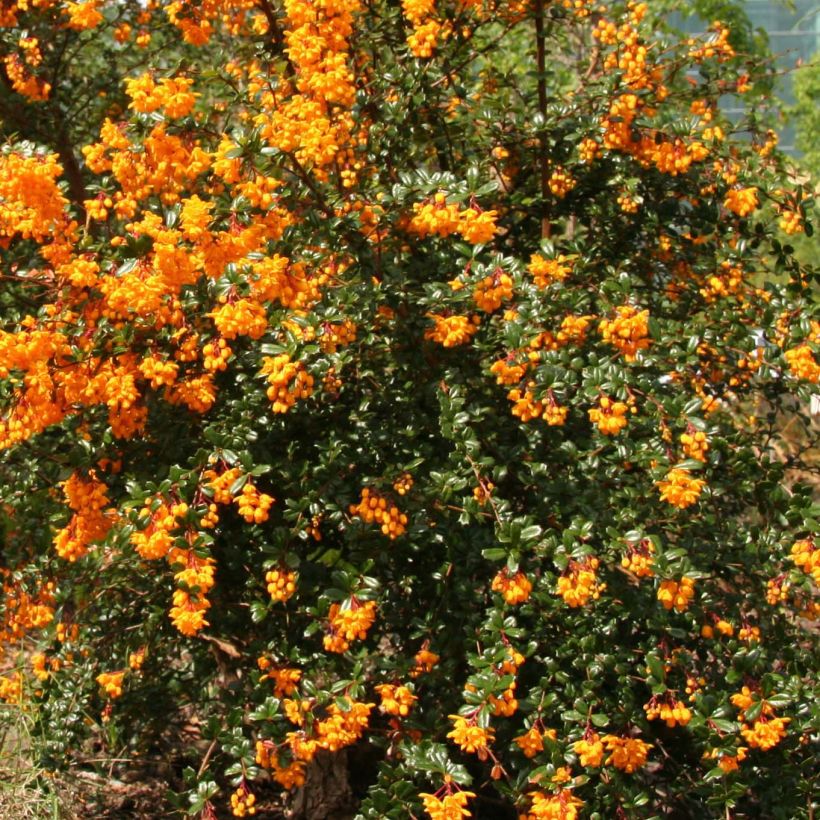

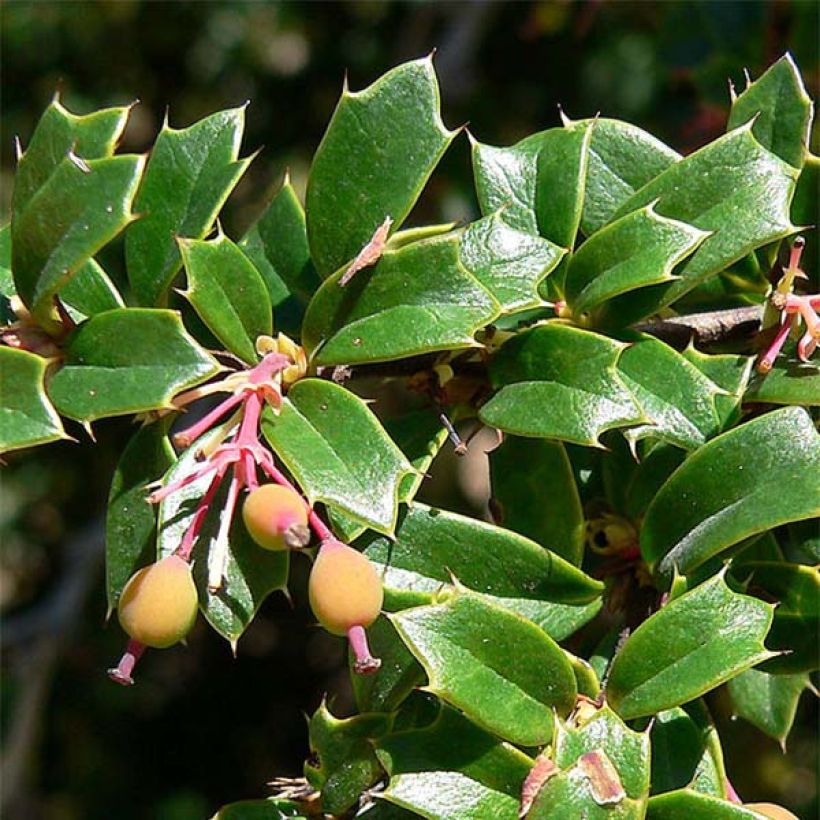

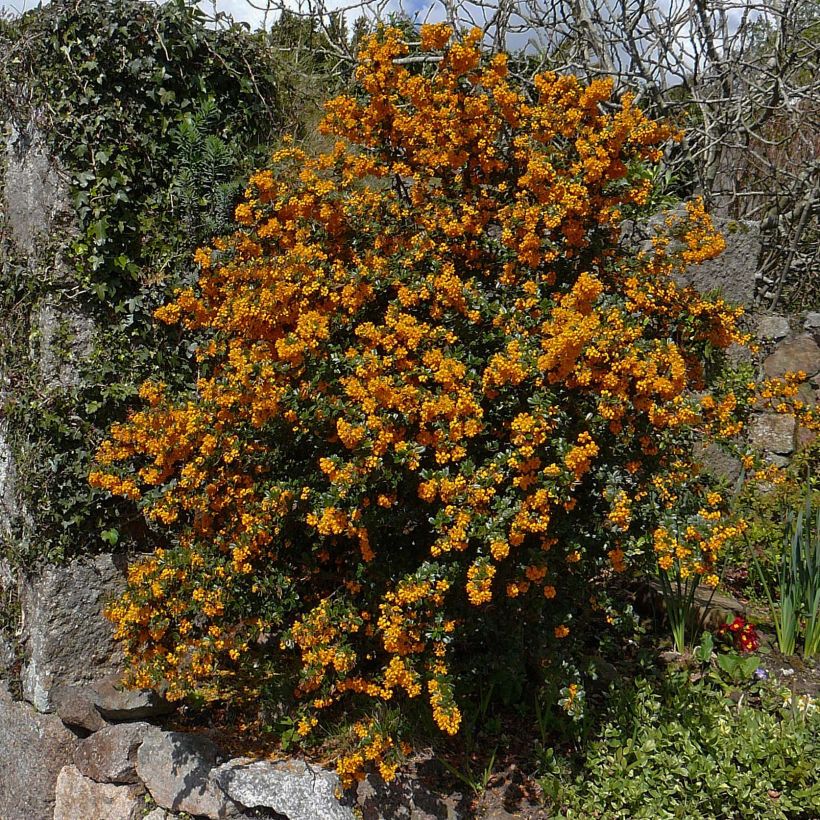

Plant habit
Flowering
Foliage
Botanical data
Berberis
darwinii
Berberidaceae
Darwin's Barberry
South America
Other Berberis - Barberries
Planting and care
The Berberis darwinii adapts to any well-drained soil, even clayey and slightly chalky. It dislikes waterlogged or excessively chalky soils. It prefers soils rich in clay, slightly acidic. Once established, it withstands summer drought quite well and will completely do without watering in summer in most regions. Its hardiness is around -15°C (5°F), after 2 or 3 years of growth: It's best to protect young plants during the first winters with a fleece in case of severe frost. It thrives in all exposures, even tolerating shade where it will, however, be slightly less floriferous. The planting hole should be twice the size of the root ball. Space the Berberis about 1m (3.3ft) apart. Add compost and water well. It is a bush that does not require pruning, but will tolerate it after flowering, if it is not too severe. Occasionally, it can be cut back to prevent it from becoming bare in the centre. Be careful not to touch the branches with bare hands as they have thorns that are difficult to remove once they penetrate the skin.
Planting period
Intended location
Care
-
, onOrder confirmed
Reply from on Promesse de fleurs
Evergreen shrubs
Haven't found what you were looking for?
Hardiness is the lowest winter temperature a plant can endure without suffering serious damage or even dying. However, hardiness is affected by location (a sheltered area, such as a patio), protection (winter cover) and soil type (hardiness is improved by well-drained soil).

Photo Sharing Terms & Conditions
In order to encourage gardeners to interact and share their experiences, Promesse de fleurs offers various media enabling content to be uploaded onto its Site - in particular via the ‘Photo sharing’ module.
The User agrees to refrain from:
- Posting any content that is illegal, prejudicial, insulting, racist, inciteful to hatred, revisionist, contrary to public decency, that infringes on privacy or on the privacy rights of third parties, in particular the publicity rights of persons and goods, intellectual property rights, or the right to privacy.
- Submitting content on behalf of a third party;
- Impersonate the identity of a third party and/or publish any personal information about a third party;
In general, the User undertakes to refrain from any unethical behaviour.
All Content (in particular text, comments, files, images, photos, videos, creative works, etc.), which may be subject to property or intellectual property rights, image or other private rights, shall remain the property of the User, subject to the limited rights granted by the terms of the licence granted by Promesse de fleurs as stated below. Users are at liberty to publish or not to publish such Content on the Site, notably via the ‘Photo Sharing’ facility, and accept that this Content shall be made public and freely accessible, notably on the Internet.
Users further acknowledge, undertake to have ,and guarantee that they hold all necessary rights and permissions to publish such material on the Site, in particular with regard to the legislation in force pertaining to any privacy, property, intellectual property, image, or contractual rights, or rights of any other nature. By publishing such Content on the Site, Users acknowledge accepting full liability as publishers of the Content within the meaning of the law, and grant Promesse de fleurs, free of charge, an inclusive, worldwide licence for the said Content for the entire duration of its publication, including all reproduction, representation, up/downloading, displaying, performing, transmission, and storage rights.
Users also grant permission for their name to be linked to the Content and accept that this link may not always be made available.
By engaging in posting material, Users consent to their Content becoming automatically accessible on the Internet, in particular on other sites and/or blogs and/or web pages of the Promesse de fleurs site, including in particular social pages and the Promesse de fleurs catalogue.
Users may secure the removal of entrusted content free of charge by issuing a simple request via our contact form.
The flowering period indicated on our website applies to countries and regions located in USDA zone 8 (France, the United Kingdom, Ireland, the Netherlands, etc.)
It will vary according to where you live:
- In zones 9 to 10 (Italy, Spain, Greece, etc.), flowering will occur about 2 to 4 weeks earlier.
- In zones 6 to 7 (Germany, Poland, Slovenia, and lower mountainous regions), flowering will be delayed by 2 to 3 weeks.
- In zone 5 (Central Europe, Scandinavia), blooming will be delayed by 3 to 5 weeks.
In temperate climates, pruning of spring-flowering shrubs (forsythia, spireas, etc.) should be done just after flowering.
Pruning of summer-flowering shrubs (Indian Lilac, Perovskia, etc.) can be done in winter or spring.
In cold regions as well as with frost-sensitive plants, avoid pruning too early when severe frosts may still occur.
The planting period indicated on our website applies to countries and regions located in USDA zone 8 (France, United Kingdom, Ireland, Netherlands).
It will vary according to where you live:
- In Mediterranean zones (Marseille, Madrid, Milan, etc.), autumn and winter are the best planting periods.
- In continental zones (Strasbourg, Munich, Vienna, etc.), delay planting by 2 to 3 weeks in spring and bring it forward by 2 to 4 weeks in autumn.
- In mountainous regions (the Alps, Pyrenees, Carpathians, etc.), it is best to plant in late spring (May-June) or late summer (August-September).
The harvesting period indicated on our website applies to countries and regions in USDA zone 8 (France, England, Ireland, the Netherlands).
In colder areas (Scandinavia, Poland, Austria...) fruit and vegetable harvests are likely to be delayed by 3-4 weeks.
In warmer areas (Italy, Spain, Greece, etc.), harvesting will probably take place earlier, depending on weather conditions.
The sowing periods indicated on our website apply to countries and regions within USDA Zone 8 (France, UK, Ireland, Netherlands).
In colder areas (Scandinavia, Poland, Austria...), delay any outdoor sowing by 3-4 weeks, or sow under glass.
In warmer climes (Italy, Spain, Greece, etc.), bring outdoor sowing forward by a few weeks.

































